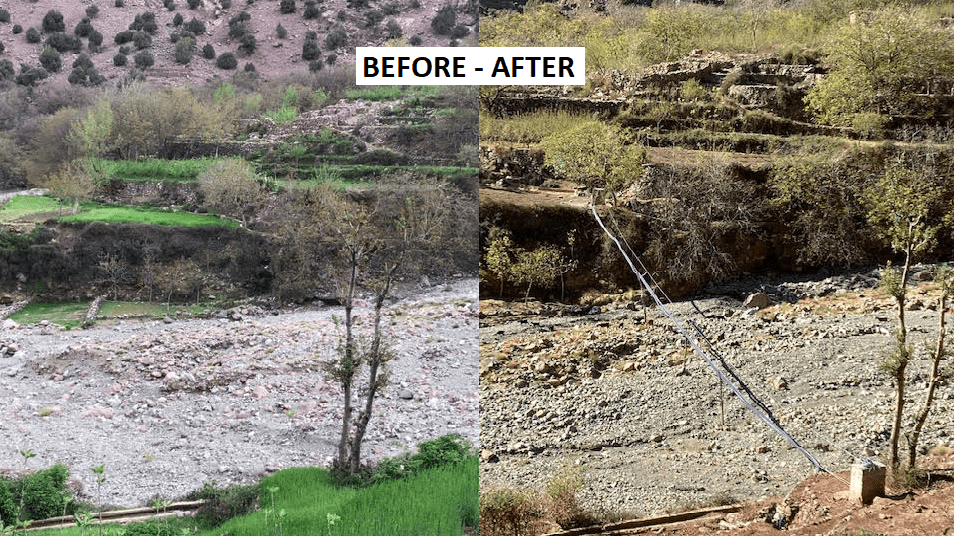The World Resources Institute held a discussion on September 29th, titled “Strong Public Policies To Restore Land, Breaking Through the Barriers to Success,” illuminating the need for current policies around the world to be changed. Putting money in the wrong places through policies that discourage farmers and marginalized groups has led to deforestation and land degradation throughout the world. Changing the current policies regarding land tenure, land regulation and general land usage can lead to helping restore our environment for years to come.
David Kaimowitz, a Forest and Farm Facility (FFF) Manager, spoke first in our discussion regarding potential changes to policies that would be helpful around the world. First, he acknowledged some challenges that we face with the current guidelines. Farmers don’t have the rights to harvest the trees they plant or let grow, so they have less incentive to want to plant trees. This lack of rights discourages land restoration and encourages degradation. Also because of tenure problems, communities can’t protect their land. They do not have the rights to hold the land, so their land is subject to being taken easily. This creates a system where farmers clear forests to get land rights. This is a failure of the policies, leading small farmers and citizens to try and hold onto a difficult commodity and creating a system of imbalance and landscape destruction.
Other challenges abound from current regulatory policies as well. Villagers find it too costly or difficult to supply forest products legally, leading to illegal means often at the cost of the environment. Women also face challenges of marginalization from the policies, which decreases participation in many agricultural activities. Benin has worked to solve this problem. Mapping, marking, and documenting plots in communal land boosted women’s land rights, resulting in households planting 43% more trees. This led to the disappearance in the gender gap of land fallowing and usage.
The High Atlas Foundation (HAF), of Morocco, also works tirelessly to decrease marginalization of women and youth and increase participation in agriculture. Allowing marginalized individuals to have the opportunities to use the land can help families overall and create a better system that helps our environment.
He also discussed problems facing Ghana and Mexico today. Current land tenure management recognizes farmers’ rights to plant but not to regrow. This insecurity of farmers’ rights leads to many issues for the environment. If you cannot control your land after you timber it, then you must move on to other land to continue your livelihood. Deforestation is rampant when this occurs, so policy changes could drastically help this situation.
In Mexico, there is a growing problem of overregulation. Officials are arbitrarily deciding that people can’t log as much timber as land management says, causing inefficiency and distrust. Farmers and the environment are suffering because of either incorrect policies or lack of regulation. This can lead to illegal activity as well, so David Kaimowitz finished with his idea for how to solve this. He said, “If we want to promote legality, we need to reduce the cost of being legal.” Taxes, bribes, and delays in getting permits need to be reduced in order for farmers to have enough footing in their areas to farm responsibly and legally for the environment.
Our next speaker, Dr. Jennifer Alex-Garcia, professor at Oregon State University, spoke on why we have such a problem with forest protection today and what we can do to fix it. In economic terms, forests are a market failure. A market failure is where there is an inefficient distribution of goods and services, creating a net loss of economic value for the parties involved. Dr. Alex-Garcia’s example refers to how forest owners bear the full costs of upkeep for their forests, but don’t reap the full benefits as these benefits are shared around the world. This leads to deforestation as it is sometimes more expensive to preserve a forest rather than cut it down.
This is where policies come into play to help. She discussed how we can give the land some monetary value that the market doesn’t capture, working to reduce the benefits of alternative land uses such as deforestation. Dr. Alex-Garcia also called for policies to decrease the cost of reforestation and increase funding to build on existing seedbanks. HAF has been working to continually improve technology, logistics, and opportunities for marginalized communities to help decrease these costs. In addition, they partnered with Land O’ Lakes International Development and USAID’s Farmer to Farmer program to create a seedbank and help smallholder rural farmers around Morocco.
Dr. Alex-Garcia finished with a consideration for the future. Countries are working to pay farmers to restore and preserve forests around the world, and this has led to fantastic results. In Mexico, payments have been made to conserve land and this has reduced vegetation loss in enrolled lands by 25-50 percent. But she asked , “How long will we need to keep paying to protect our forests?” While it could potentially be forever, I don’t consider this necessarily a bad thing. Humans have been paying for certain things since nearly their inception, so maybe paying to keep our forests and trees around isn’t so bad.
Henry Prillaman is a student at the University of Virginia and an intern at the High Atlas Foundation.




